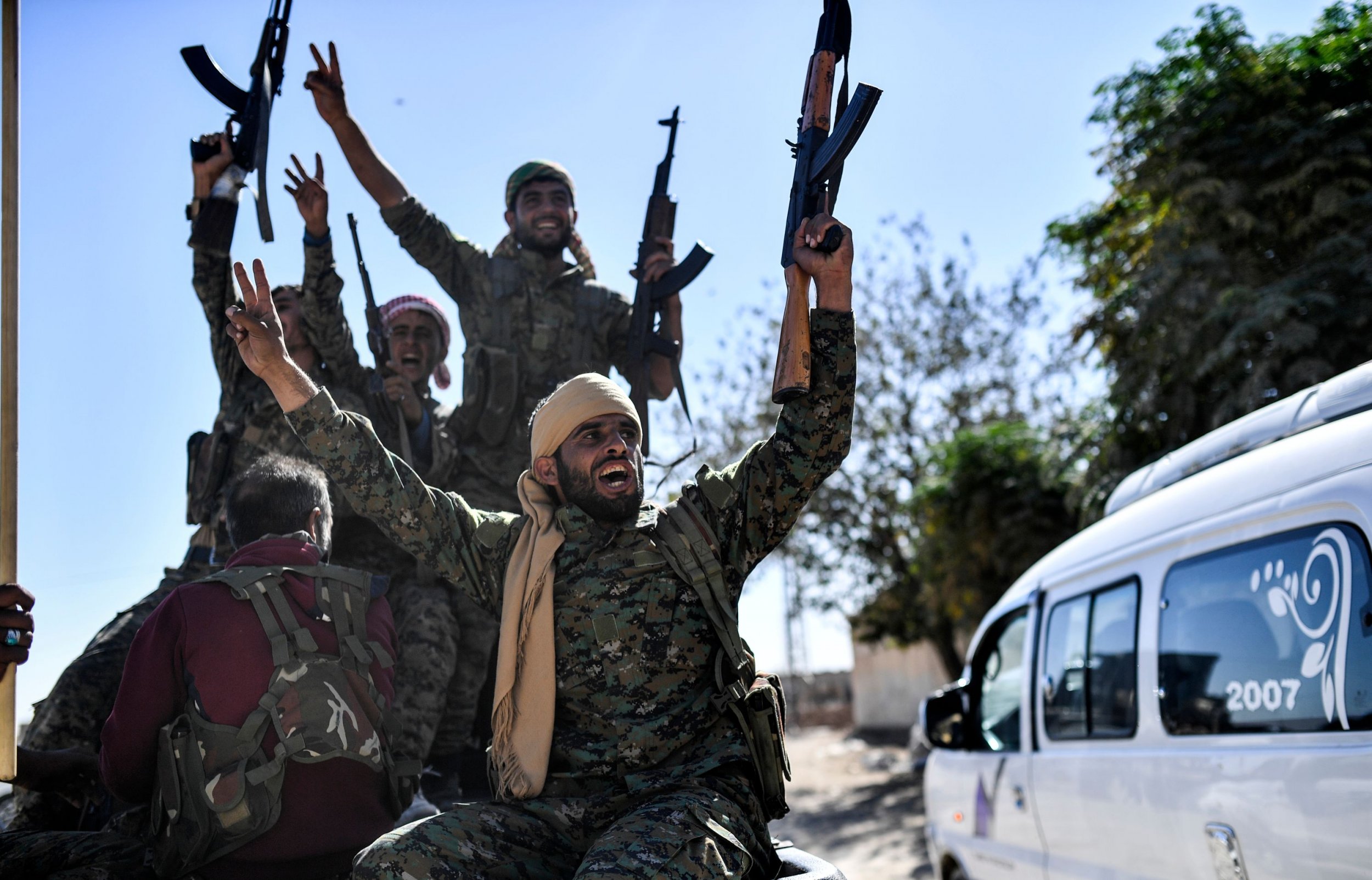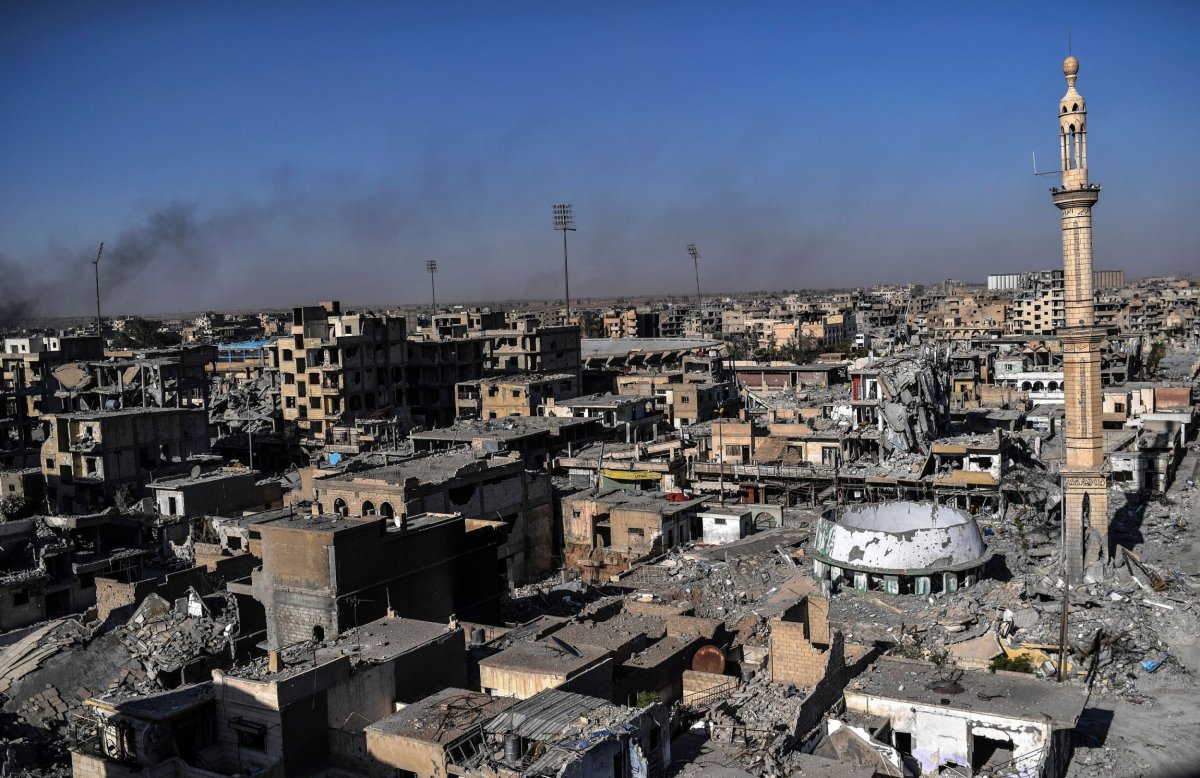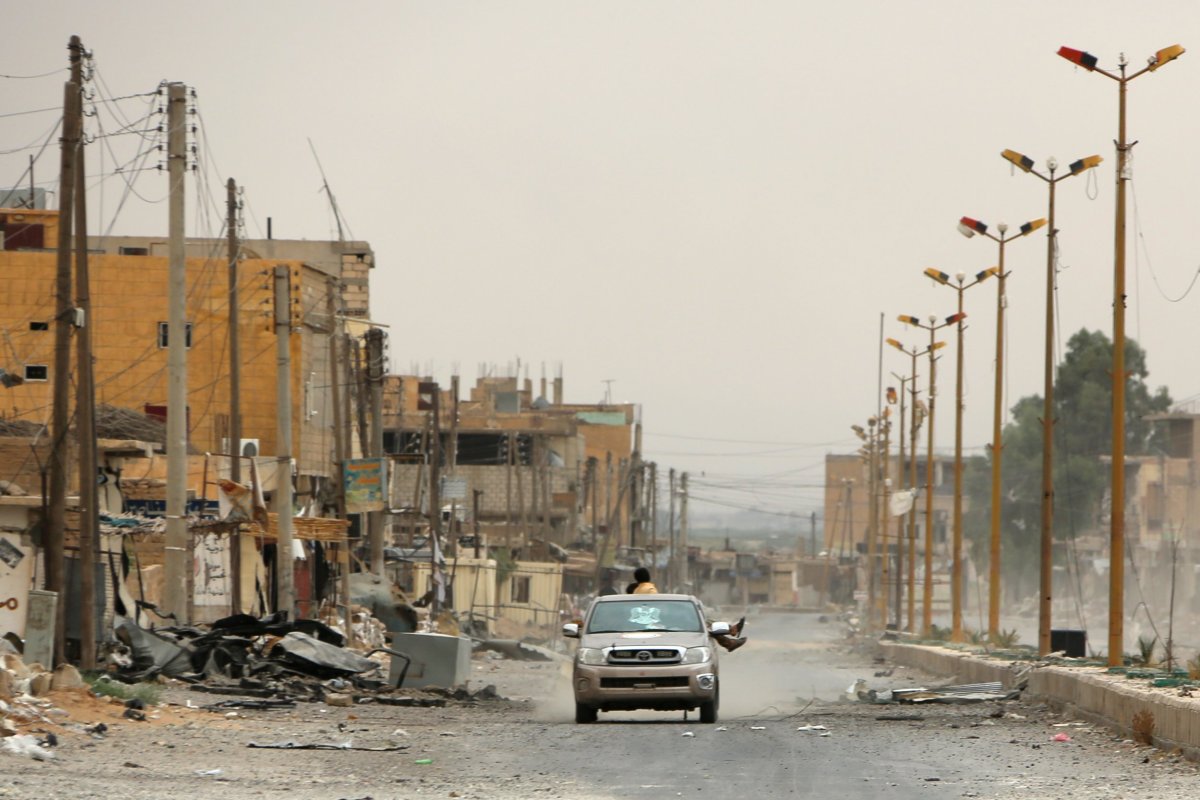
On Tuesday, conflicting reports emerged from Raqqa, the eastern Syrian city that has served as the de-facto capital of the Islamic State militant group's self-styled caliphate since 2014.
A monitoring group reported that U.S.-backed forces had completely cleared the city of jihadis. But the forces taking on the group said that while they had secured the city's main hospital, militants were remaining holed up in the city's stadium, where they were making a last stand and refusing to surrender.
Talal Sello, spokesperson for the Syrian Democratic Forces, told AFP news agency later in the day that the coalition of Kurdish and Arab fighters had secured full control of the city.
After four months of embattled street-to-street fighting, the ground forces have finally ousted the militant group from the biggest city it had controlled in Syria. The question is: what comes next?
The battle will move on to other areas of ISIS-held territory in Syria, and a bloody insurgency awaits the different ground troops battling the group, those supported by both Washington and Moscow.
The Next Targets
All that remains in the hands of the jihadi group are the eastern Syrian cities of Deir Ezzor and Mayadin, the northwestern Iraqi city of Tal Afar, and the lawless borderlands that connect the country with Iraq.
The regime of Syrian President Bashar al-Assad, supported by Shiite militiamen and the Russian air force are laying siege to both cities with airstrikes and a ground offensive.
As Raqqa was falling, hundreds of ISIS fighters fled the city into the eastern area of Syria known as the Euphrates River Valley near the Iraqi border, where U.S. intelligence believes the group to have been shuttling its resources in a bid to survive.
The next battle will take shape in these eastern regions, with Deir Ezzor and Mayadeen next to fall, but also the hunt for ISIS fighters in the Syrian countryside who try to melt away. The U.S. is conducting targeted strikes against ISIS's top leaders, these will continue, and it has dispatched an expeditionary force to hunt down the group's top commanders, to either capture or kill them.
The prized asset in the sights of Washington, Damascus and Moscow remains ISIS's leader, Abu Bakr al-Baghdadi.
Containment
With ISIS cornered in its population centers, its fighters have served as easily-spotted targets. But after the fall of its major cities, an arguably more dangerous problem awaits: a ghost-like jihadi insurgency.
The rise of ISIS was sparked when its former incarnation, the Al-Qaeda-affiliated Islamic State of Iraq, or ISI, laid low before capitalizing on the Syrian civil war and a U.S. withdrawal from Iraq. The group and its supporters could do the same again, sitting back and waiting for the opportune moment to strike again.
After six years of civil war in Syria, and three years of battles and airstrikes that have wrecked Iraq's cities—Ramadi, Fallujah, Mosul, Tikrit and Tal Afar—the foundations of functioning societies, ones that could beat back the ideology of a radical Islamist group, are vacant. The conditions for the radicalization of Iraqis and Syrians remain arguably as ripe as they were before 2014 for a jihadist insurgency.
Like before, it could be a case of waiting for the next incarnation of ISIS.

Global network
The group's self-styled caliphate in Iraq and Syria will continue to dwindle, but its presence and influence abroad remains.
It boasts a sophisticated network of cells that are continuing to fight in the name of the jihadi group, from West Africa to southeast Asia.
ISIS cells are competing against the Taliban in Afghanistan, against Al-Qaeda in the Arabian Peninsula in Yemen, and are active in the Philippines, Saudi Arabia, Egypt, Libya, Tunisia, Nigeria, and Russia's Caucasus among others.
While they will likely receive less assistance and funding from ISIS central as its power wanes, these cells could still act in the group's name, carrying out grand-scale or small-scale attacks—such as the downing of a Russian jet over Egypt's Sinai peninsula, or suicide bombs at Shiite mosques in Yemen—that could continue to cause carnage outside of Iraq and Syria.

Geopolitical battlelines
The geopolitical ramifications of defeating ISIS are just as significant to what happens next in the region as eroding the group's hold on territory.
Battling the group has emboldened Kurdish forces in both northern Iraq and northern Syria, allowing them to gain a hold of tracts of territory that both Baghdad and Damascus will want back.
The manifestation of this is already being witnessed in northern Iraq, where Shiite militias allied to the central Iraqi government have moved into previously Arab territories that the Kurdish Peshmerga forces had wrestled from ISIS. Iraq embarked on a military operation that captured the city of Kirkuk from Kurdish forces on Monday, as well as lucrative oil fields there that the Kurds had also controlled.
The campaign to defeat ISIS allowed the Kurds to show themselves to be the most effective force fighting the jihadi group. But what came after was a bid for its aspirations of independence, a move rejected by the U.S.-led coalition and that unsettled Turkey and Iran, both of which are combatting Kurdish separatist militants at home.
Turkey, which cites Kurdish expansionism as a national security concern, has also rejected the Kurdish advances in eastern Syria, calling for their withdrawal from the territories once ISIS is ousted.
Added to the mix are Shiite militias securing Sunni towns and cities in Iraq, Kurdish fighters securing Arab towns in Syria, and the Syrian civil war rages on with more factions than one can count on both hands.
So, the battle for land no longer is ISIS hands is one that will continue long after the fall of Raqqa. If the ownership of these lands cannot be decided with words, then it will be decided with arms.
Uncommon Knowledge
Newsweek is committed to challenging conventional wisdom and finding connections in the search for common ground.
Newsweek is committed to challenging conventional wisdom and finding connections in the search for common ground.
About the writer
Jack is International Security and Terrorism Correspondent for Newsweek.
Email: j.moore@newsweek.com
Encrypted email: jfxm@protonmail.com
Available on Whatsapp, Signal, Wickr, Telegram, Viber.
Twitter: @JFXM
Instagram: Read more
To read how Newsweek uses AI as a newsroom tool, Click here.








